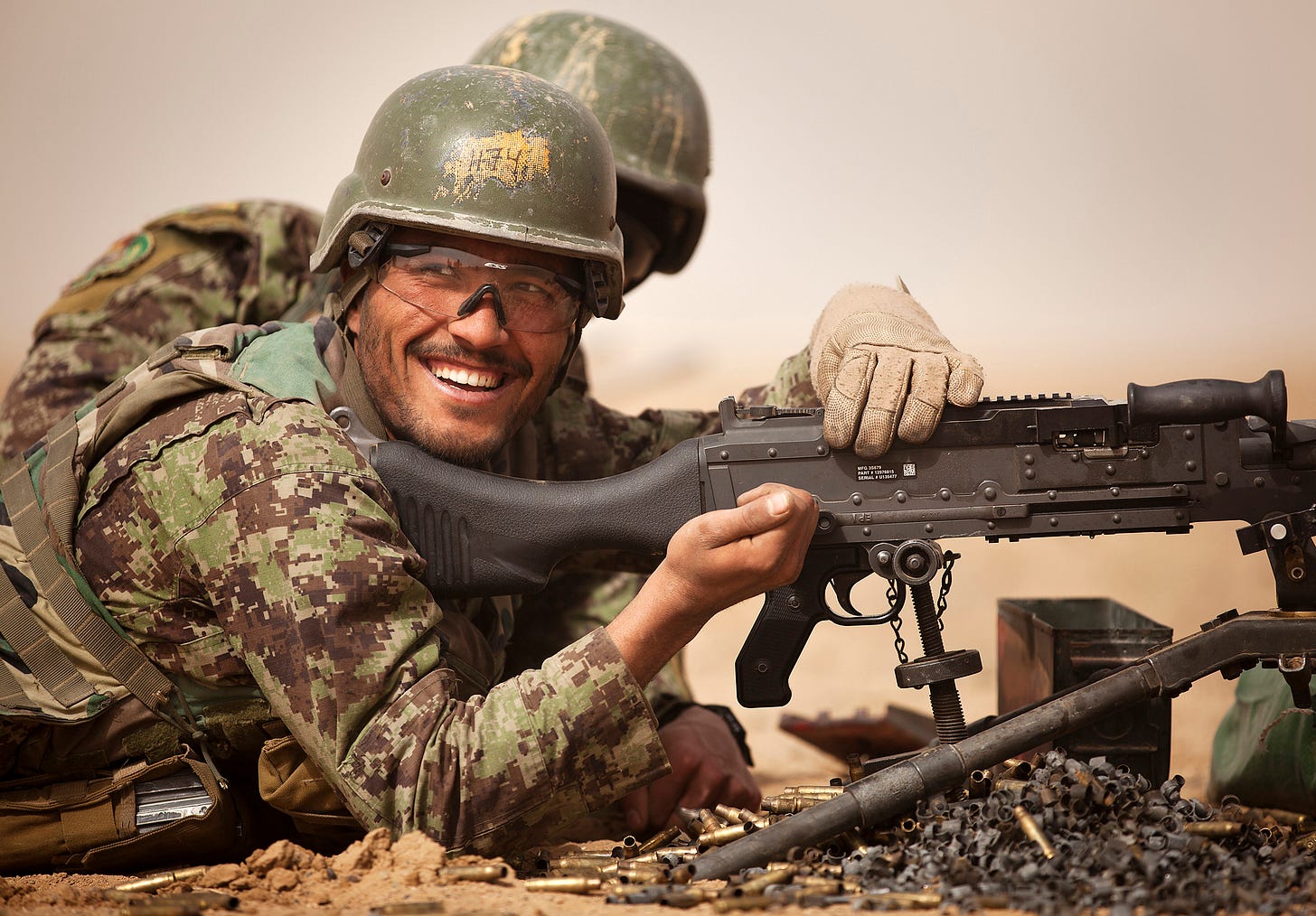Another 24,000 Afghan migrants who fought for Britain? It could be worse
Last year, 37,000 unvetted migrants arrived on small boats.

Look, I’m not saying it’s ideal. Turns out that Britain has been forced to offer asylum to nearly 24,000 Afghan soldiers and their families, after a Royal Marine accidentally leaked a spreadsheet containing their identities.
This will come at a cost to the taxpayer of an eyewatering £7bn, overshadowing Rachel Reeves’s Mansion House speech on Tuesday night, at a time when the Chancellor is already considering raising taxes in the autumn to balance the books.
Take a step back, however, and it could be a lot worse.
In 2024, a total of 37,000 migrants arrived on our shores in small boats. What is their contribution to the wellbeing of these islands likely to comprise? Forgive my cynicism if I suggest it will be a combination of undeserved benefit claims, black market activity, petty crime and sexual abuse.
To put it another way, how many of those 37,000 unwelcome strangers will turn out to be of any benefit to British society? I would wager a number close to zero. They are criminals, entering our country illegally.
They are not fleeing any strife more considerable than the French language, attitude and manners. They cannot in any way be described as “refugees”. They have neither lifted a finger to help this country in the past, nor have any intention of doing so in the future.
By contrast, those 24,000 Afghans have already put their lives on the line for Britain. Back in 2018, I interviewed Nazir Ayeen, an Afghan interpreter who had translated both for our armed forces and the King when he visited the country.
He had made it to Britain but faced deportation as the Government was intent upon refusing him asylum. “Interpreters are not normal asylum seekers,” he told me. “We sacrificed our youth and our safety to make Britain a safer country and to work for British interests.
“I expected that the Government would show some recognition of our services. I thought they would welcome us to stay in Britain if we were in danger.”
Ayeen told me that in contrast with the behaviour of the Home Office, the British Army had welcomed him with open arms. “I have always felt a lot of loyalty to Britain,” he said. “In Helmand, I got on with the soldiers very easily. I was with them in the ups and the downs, the highs and the lows.
“The soldiers would have given their lives for me, and I would have done the same for them. One told me that if something happened to him, I should take his weapon and try to defend him. We were like brothers.”
His most traumatic moment, he said, came in September 2008, when Private Jason Lee Rawstron, 23, a rifleman in the Parachute Regiment, was shot dead by the Taliban just yards from where he was standing.
“We were on foot patrol when we were ambushed,” he recalled. “There was a fierce fight for about 30 seconds. I thought I was going to die there. I saw death in front of my eyes. I saw bullets flying around. I thought that my time on earth had ended.
“I was very scared, very frightened and I completely lost hope. I was seeking shelter, but I still had an eye on what was going on around me. I saw the soldier aiming towards the Taliban and shooting. I saw him take a bullet straight in his head and he just died in front of me.”
Happily, after my story was published, Ayeen was indeed granted asylum in Britain. He went on to university and we became friends. I have got to know him as a talented, diligent and – above all – loyal subject, a credit to this country.
Obviously, he is worth an entire boatload of illegal migrants. Probably more.
Not that all the 24,000 former Afghan soldiers and their families will be as decent as Ayeen. I’m sure there will be some among them who do not live up to the privilege of life in this country.
Cultural difficulties will present a significant challenge in some cases, and we must not close our eyes to those. But at least we know who these people are and know where they are going to live. We can help them to integrate and monitor their progress.
By contrast, the rabble arriving on the small boats often melt away into the black economy, never to be seen again (apart from in crime statistics). Those who are graced with free hotel accommodation, mobile phones and healthcare are unlikely to respond with gratitude.
So far as I’m concerned, they should be incarcerated upon arrival in Britain and deported as soon as possible. Those Afghans who have fought bravely for our country, on the other hand, deserve our help and respect.





Jake, neither you nor I know the stories of the asylum seekers arriving on small boats, whether prior to assessment their claims are valid or what kind of contribution they may make to our society. We too were once immigrants and asylum seekers and I hear your words echoing what they said about us as Jews seeking safety and sanctuary in Britain. Your article is hateful and divisive. You have better causes to promote.